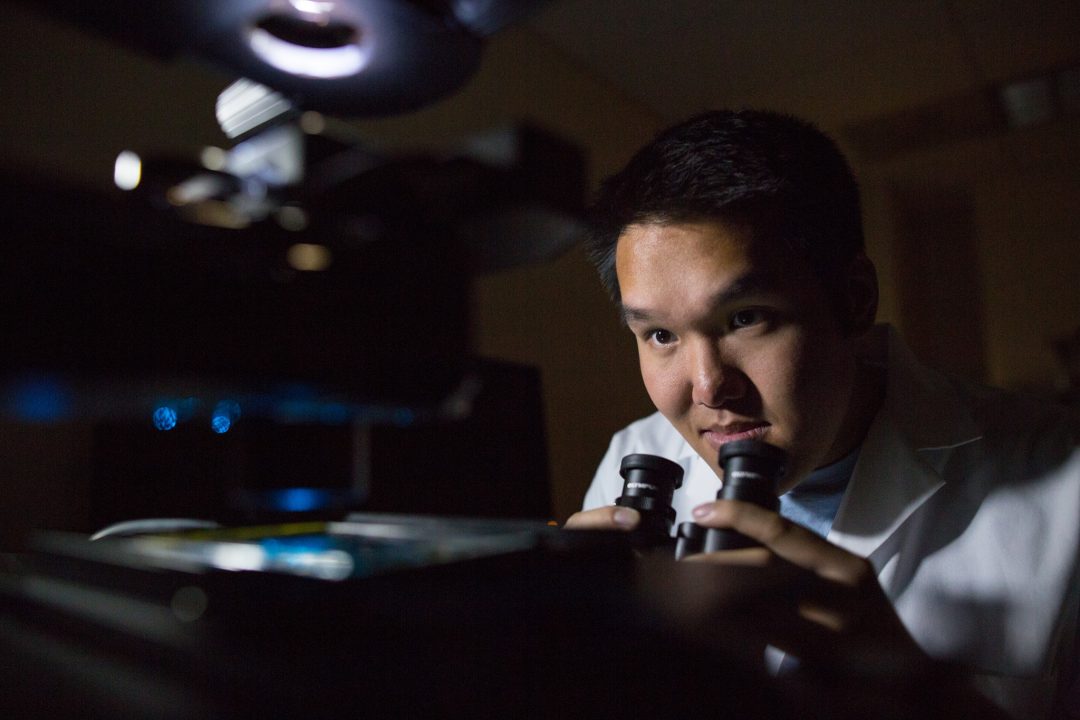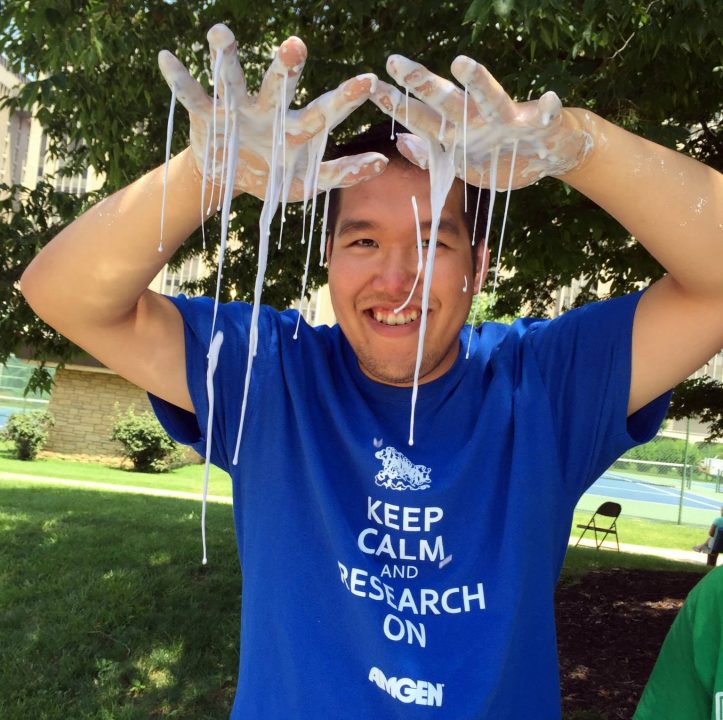Five Years Later: Applying Research Skills to Finding Equitable Solutions in Public Health

The last several months, Alex Kong has had a front-row seat to some of the biggest advances in medicine, as the world responds to the COVID-19 pandemic. Every day, he has been tracking development of vaccines and therapies against the virus, and he is seeing the “blisteringly fast speed” at which research and development is occurring.
“This disease has very much invaded every aspect of my life,” says Kong, an Amgen Scholars alumnus. “It’s tiring at times, but it’s also empowering to be able to follow along with what pharmaceutical companies are doing to address the pandemic, as well as to think about and to actively provide guidance on what more they can be doing when it comes to ensuring that everyone, no matter where they live or how much money they can make, can access the medicines, vaccines, and diagnostics that they need.”
Working at the Access to Medicine Foundation in Amsterdam, Netherlands, Kong has brought his lab and clinical experience to global health policy. He leads research and development analysis for the Access to Medicine Index. The Index tracks and incentivizes companies to focus on developing and delivering products with people in low- and middle-income countries in mind. This fall, he will be transitioning to a Ph.D. program in International Health at Johns Hopkins University.
But global health was not always his focus. Growing up, Kong loved to take apart machines, and that fascination with the world grew to chemistry and biology in high school. “I found infectious diseases to be the most fascinating of all, seeing an elegance in how such small pathogens could cause so much damage and a brilliance in how scientists targeted individual processes and parts to destroy the entire machinery,” he explains.
Kong decided to pursue pharmacology at the University of Kansas, and participated in the Amgen Scholars Program in 2015 at Washington University in St. Louis the summer after his sophomore year. A high point of the program for him was meeting scholars and members of the biotech community at the Amgen Scholars symposium at UCLA. He recalls a “Willy Wonka-esque tour” of Amgen headquarters: “I was awestruck and envious at how much protein they could express and purify at a time.”

“Pharmacy school, and a handful of exceptional mentors like my first undergraduate research PI, helped me to bring this passion further by connecting the dots with how diseases worked, how to target them, and what this meant for those afflicted with these diseases,” he says. “Scientific discovery was always a driving factor, but being able to devote myself to a field that could help a lot of people was what breathed life and meaning into that passion.”
Kong went on to be Gates Scholar at the University of Cambridge, where he received a master’s degree in pharmacology. After that he returned to Kansas to complete his pharmacy program through clinical rotations in pharmacies around the state. “During this time, I thought more seriously about how my interests in global health and health policy had developed in the years following the Amgen Scholars Program,” he says. “While I still loved the sciences, I wanted to give careful thought to the possibilities of an education and career in global health.”
His work at the Access to Medicine Foundation the last couple of years has solidified his passion in global health policy. But though he shifted from a research career to a policy one, Kong says that he “still leans” on his clinical and basic science training on a near-daily basis. “I never imagined that I would be where I am now five years ago,” he says. “I am both physically and professionally quite far from where I expected I would be at this point in time, but I’m so glad that I am where I am, and the path that I have taken is a reflection of values that I’ve always held.”
One of the biggest lessons he has learned from and since Amgen Scholars, he says, is the importance of resilience. “While some of the best feelings come from discovering something new and being able to share that with others, some of the most rewarding experiences come from failure. And when you’re in research, you face failure on a regular basis,” he says. “But you keep trying: you troubleshoot, you identify the bits that aren’t working or could be better, you get it to work, and you come out of it as a better problem solver and with more perseverance than you can imagine. Regardless of what field you end up in, that resilience is going to be one of your most valuable assets.”
Heading to Johns Hopkins this fall, Kong hopes to continue his work to ensure that there’s strong, sustained activity in research and development for poverty-related diseases, and that the newest and most effective products are options for those with the greatest need. “It’s a very, very exciting time to be working in global health,” Kong says. “I am hopeful that this same energy and the lessons learned from this pandemic can be applied to other areas of global health to radically transform the way research and development is done and to bring access to the center of the conversation.”

